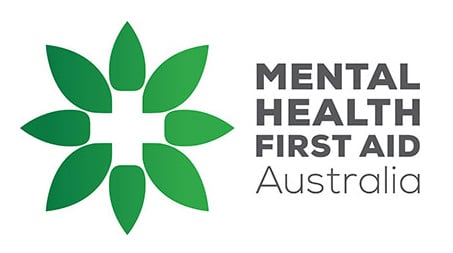Making a difference
With one in five Australian adults experiencing a mental health problem each year, most of us will know someone within our community with a mental health problem. Mental illness does not discriminate - no matter where you live, the level of support you have access to, or your knowledge of mental health, mental illness can affect you and the people within your community.
Mental health problems can have a severe and long-lasting impact on a person’s education, work and relationships, and some mental illness can contribute to premature death, while others are a major cause of disability. Mental illness doesn’t just affect people in isolation, it’s an issue that can affect the whole community.
Despite the prevalence of mental illness in our communities and the fact that mental health and well-being are becoming more openly discussed, many people still find it difficult to know what to say or how to support someone who may be experiencing a mental health problem. If we can accept mental health problems as a whole-of-community issue, then the pathways to support can become strengthened by connection, empowerment and increased capacity.
In the same way we have seen collaboration, commitment and investment lead to considerable progress in responding to COVID-19, the same efforts are key to communities becoming more connected and resilient now and into the future.
.jpg?width=2000&name=Untitled%20design%20(19).jpg)
Building connected and resilient communities
Communities that have the mental health literacy and practical skills to support someone experiencing a mental health problem, are open to discussing mental health issues and providing support. Providing early-intervention education that Increases mental health literacy within local communities, whether they be workplaces, schools, sporting clubs, faith- or ethnicity-based groups, etc., builds more resilient communities.
This is where Mental Health First Aid (MHFA) Australia can help.
Our courses teach the skills and confidence needed to approach and support a person who may be experiencing a mental health problem. People who complete a course go on to become empowered members of the community who are able to recognise, understand and respond to those experiencing mental health problems.
To build capacity for mental health support, many local councils, community groups, sporting clubs and service providers are choosing to nominate staff and members to become accredited Mental Health First Aid Instructors to deliver MHFA Australia training in their community.
Our courses give people the knowledge, practical skills and confidence to approach or respond to family members, friends, co-workers or others in the community who may need information or support. The impact of that first supportive conversation in a time of need can be profound.
A community that can take a shared responsibility for mental health where people are able to recognise and respond to signs of mental illness, is inherently empowered to tackle the problem.
Whether you are looking to complete a course yourself, or exploring whether MHFA training is the right fit for your community, we are here to help!
To learn more about Mental Health First Aid in the community visit >>> https://community.mhfa.com.au/
